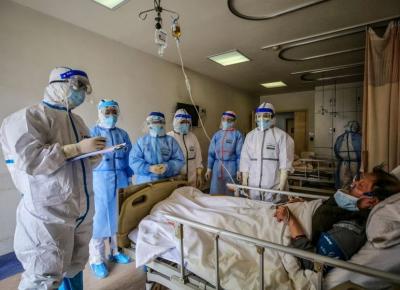Common cold T cells may offer protection against Covid-19: UK study
By Lokmat English Desk | Published: January 11, 2022 08:03 PM2022-01-11T20:03:39+5:302022-01-11T20:03:39+5:30

People with higher levels of T cells from common cold coronaviruses are less likely to become infected with SARS-CoV-2, the strain which causes Covid-19, according to a new UK study led by Indian-origin researchers on Monday.

The study, published in the journal Nature Communications' and led by Imperial College London researchers, claims to provide the first evidence of a protective role for T cells.

While previous studies have shown that T cells induced by other coronaviruses can recognise SARS-CoV-2, the new study examines how the presence of these T cells at the time of SARS-CoV-2 exposure influences infection.

The researchers believe their findings provide a blueprint for a second-generation, universal vaccine that could prevent infection from current and future SARS-CoV-2 variants, including Omicron.

Our study provides the clearest evidence to date that T cells induced by common cold coronaviruses play a protective role against SARS-CoV-2 infection

These T cells provide protection by attacking proteins within the virus, rather than the spike protein on its surface, said senior author Professor Ajit Lalvani, Director of the National Institute for Health Research (NIHR) Respiratory Infections Health Protection Research Unit at Imperial College London.

"The spike protein is under intense immune pressure from vaccine-induced antibody, which drives evolution of vaccine escape mutants.

In contrast, the internal proteins targeted by the protective T cells we identified mutate much less.

Consequently, they are highly conserved between the various SARS-CoV-2 variants, including Omicron, he explained.

"New vaccines that include these conserved, internal proteins would therefore induce broadly protective T cell responses that should protect against current and future SARS-CoV-2 variants, he said.

The study began in September 2020 when most people in the UK had neither been infected nor vaccinated against SARS-CoV-2. It included 52 people who lived with someone with PCR-confirmed SARS-CoV-2 infection and who had therefore been exposed to the virus.

Blood samples from the 52 participants were taken within one-six days of them being exposed to the virus. This enabled the researchers to analyse the levels of pre-existing T cells induced by previous common cold coronavirus infections that also cross-recognise proteins of the SARS-CoV-2 virus.























